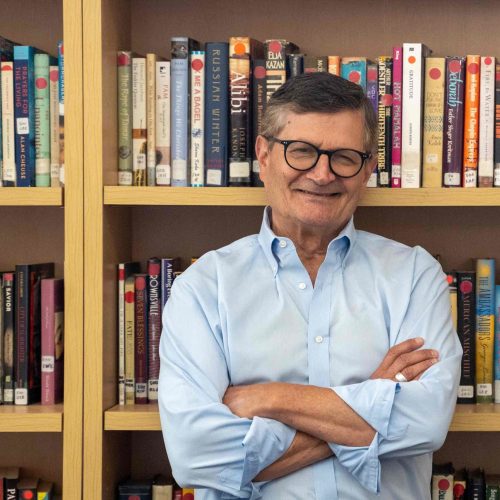Though I’ve only been writing these columns from Scottsdale for a few months, careful – or even not-so-careful – readers have probably deduced some of my central motifs. I don’t need to yell out “Spoiler Alert” to tell you that Israel – and more than that small sliver of land in the Middle East, but the Zionist ideal – is a subject to which I’m powerfully drawn. You’ve probably also noticed that the concept of inclusivity – and in particular, Jewish inclusivity – has earned a spot in my personal pantheon of themes that motivate me.
I will happily write and, if you give me a few minutes, prattle on about either of these themes, and will likely provide some historical context for both (the significance of history is another favorite topic).
Looking back on the pieces I’ve written since becoming Oasis’ Founding Head of School, another theme that occasionally rears its head is the dynamic tension between individualism and collectivism. Of course, how that struggle plays out in a Jewish context makes the topic much more than an abstract subject for a Philosophy 101 paper.
It should not be a surprise to anyone schooled in Jewish history and Jewish thought that our roots are communal. Certain prayers are only allowed to be recited in the presence of a minyan, and that gathering of ten adult Jews is a representation of the entire community. Our Sages have taught us that, Kol Yisrael aravim zeh bazeh – that all Jews are responsible for one another – and, Al tifros min ha-tzibor (Do not separate yourself from the community). We are known, collectively, as Am Yisrael – the People of Israel, and not Dat Yisrael, the religion of Israel.
On Yom Kippur, we confess our sins collectively – Ashamnu, bagadnu, gazalnu… – not because each of us has (Gd forbid) trespassed and dealt treacherously and robbed… We recite this litany because when one of us falls, it affects, sooner or later, the rest of us. We confess to this list, not because we personally committed these sins, but because, just possibly, by our action or our words (or, our inaction or our lack of words), we allowed someone else to sin.
Not too long along, “It takes a village” was offered in general political conversation as a reminder that we need everyone to make a functioning society work well. It’s not clear whether that particular aphorism came from African or Native American tribes, though many cultures and traditions have a version of the same message. What is clear is that Judaism and Jewish thought have long championed the strength and the value of the community.
This is not to give credence to the canard that Judaism doesn’t value the individual. Far from it – each of us is a unique soul (though, in traditional rabbinic teaching, we are all created from one common, Divine image). That said, Judaism does offer a powerful pushback against some of the (still) cherished mythologies in the West, ones rooted especially in our own country. Rugged individualism – pulling oneself up by one’s own bootstraps – the heroic mountain man, living on his own… These images still play out in our political and philosophical discourse, and they even have policy consequences.
For our community, with our history and traditions and Texts, the verdict has been in for millennia. When Robert Putnam wrote Bowling Alone, his cautionary tale of a society becoming uber-individualistic rather than community-minded, he could have been a Rabbi opining in the pages of the Talmud.
We are, without a doubt, stronger and healthier when we are together, when we recognize that we can all learn from each other, grow because of each other, appreciate more because of each other. In the words of another great Jewish sage (Leonard Nimoy, aka, Spock): “The needs of the many outweigh the needs of the few (or the one).” No wonder I’ve always liked Vulcans.
שבת שלום – Shabbat Shalom,
Jerry

